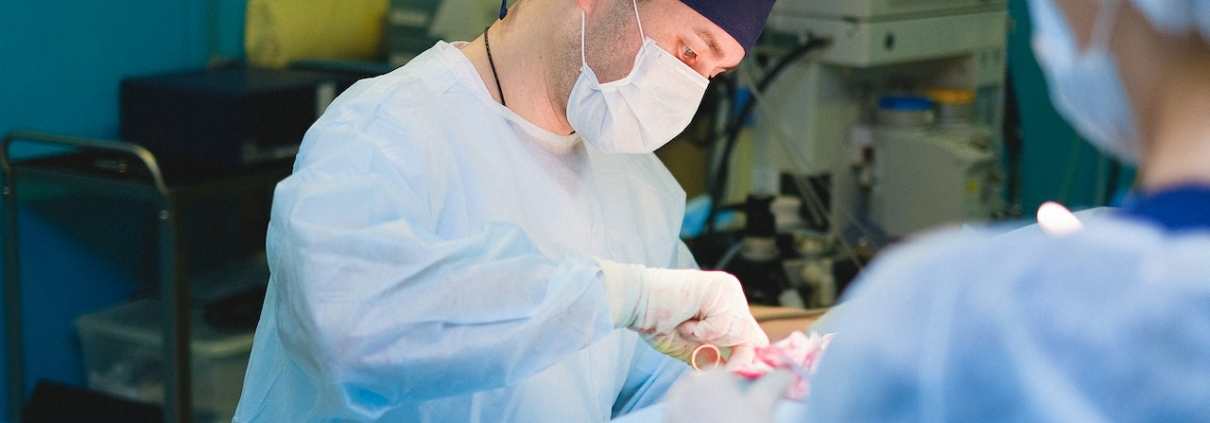Operating Theatre Staff Roles and Responsibilities
It takes a lot of people to run a successful operating theatre. The most efficient operating theatre is one in which everyone knows their own role and responsibilities, as this means that everyone can depend on everything being done that needs to be done.
In this post we’ll explore the various operating theatre staff roles, and the key responsibilities for each member of the team.
Outline of Operating Theatre Staff Rolls
Please note that this is a general list of operating theatre staff roles. Specific theatres might have specific roles, and many members of the team will share responsibilities as the situation demands. So please don’t treat this list as a definite hierarchy so much as an example of the sort of roles that could exist in your average operating theatre.
Operating Theatre Manager
The operating theatre manager oversees the theatre’s day-to-day operational issues. They will often manage multiple sites. Their responsibilities involve managing budgets and resources, as well as implementing risk management and health and safety policies.
As well as providing professional leadership to all theatre staff, they might lead on research projects and assess, develop, and implement new evidence-based programmes of care.
You can read our full guide to an operating theatre manager’s roles and responsibilities.
Operating Theatre Team Leader
Supporting the theatre manager, the team leader will directly lead the multidisciplinary theatre team, both professionally and clinically.
Their responsibilities will involve planning and organising workload and supervising the nursing staff. They may also provide clinical advice, and ongoing training and development in the use of specialist instruments and equipment.
The team leader will also oversee the maintenance of operating theatre equipment, which will include keeping on top of stock levels.
Theatre Practitioners
Nurses, surgeons, anaesthetists and other specialists. Responsible for undertaking or assisting in the highly skilled invasive medical procedures that take place in the controlled theatre environment.
As they carry out such delicate, high-pressure procedures, many would argue that the theatre practitioners are the most important of all the operating theatre staff.
However, as we’ll see, the practitioners depend on a huge team of support staff to ensure they can deliver the highest possible quality of care.
In an operating theatre, communication is key, and each member of the team must feel like they can depend on every other member of the team at all times.
Operating Department Practitioners (ODPs)
ODPs have a diverse range of skills across three main areas of the theatre:
- Anaesthetics – While the anaesthetist works, the ODP will usually interact with the patient – talking to them and giving them whatever support they need to stay calm.
- Scrub – While the theatre team is operating, the ODPs will ensure that all surgical equipment is readily available and adequately sterilised.
- Recovery – ODPs will provide a lot of recovery support, including airway management, pain relief, and supervising patients as anaesthesia wears off.
Surgical Care Practitioners
Registered non-medical healthcare professionals who work with the surgical team to ensure the best outcome for the patient.
Before the operation, they will gather the patient’s medical history and perform an assessment. Throughout this process, they will liaise with the surgical team so as to inform them of any of the patient’s special requirements.
During procedures, they may be responsible for certain surgical interventions. These may include prepping the patient, assisting in haemostasis, and carrying out wound closure procedures.
Following the operation, they’ll assist in the patient assessments, and contribute to any meetings to discuss the patient’s ongoing care.
Recovery Practitioner
As the name suggests, recovery practitioners are there to oversee the patient’s recovery. Though their responsibilities begin before the procedure, as they usually assist the anaesthetist and ODP in supervising the patient.
Following the procedure, they’ll oversee advanced pain and airway management, and the ongoing monitoring of the patient for post-operative complications.
Support Workers
Finally, a team of support workers will carry out all the essential housekeeping duties and assist in any other activities essential to the smooth running of the operating theatre.
This might include maintaining the cleanliness of the theatre itself, as well as all ante rooms, changing rooms, kitchens, and sterilisation suites. They will also assist in stock management, keeping tabs on stock levels and ensuring that the team will always have everything they need, exactly when they need it.
Indeed, a good operating theatre support worker will be able to anticipate the requirements of the operating team, so they can give them the support they need before they even realise they need it.
Running an Efficient Operating Theatre
As we’ve seen, it takes a huge team of people to run a successful operating theatre.
Each member of the team needs to be in exactly the right place at exactly the right time. They should have fast access to exactly the equipment they need, and they should be able to depend on this equipment being in a safe and reliable condition.
Good communication is vital if such a large, multidisciplinary team is to function. Effective leadership can help create a culture in which each member of the team is perfectly aware of their role and responsibilities. But this is just one aspect of an efficient operating theatre.
Read our full guide to improving quality and efficiency in operating theatres.
Get Expert Advice Today
Whether you want a consultation on effective infection control, or some advice on improving operational effectiveness in the theatre, our experts are here to help.
Get in touch to talk to one of our expert consultants today.



